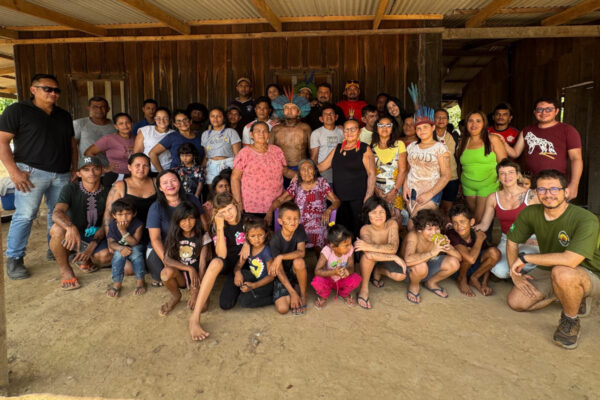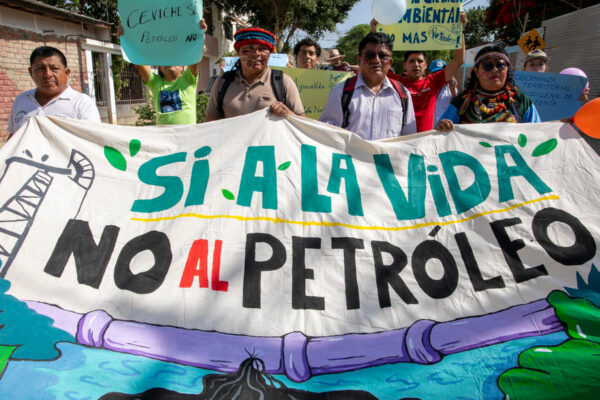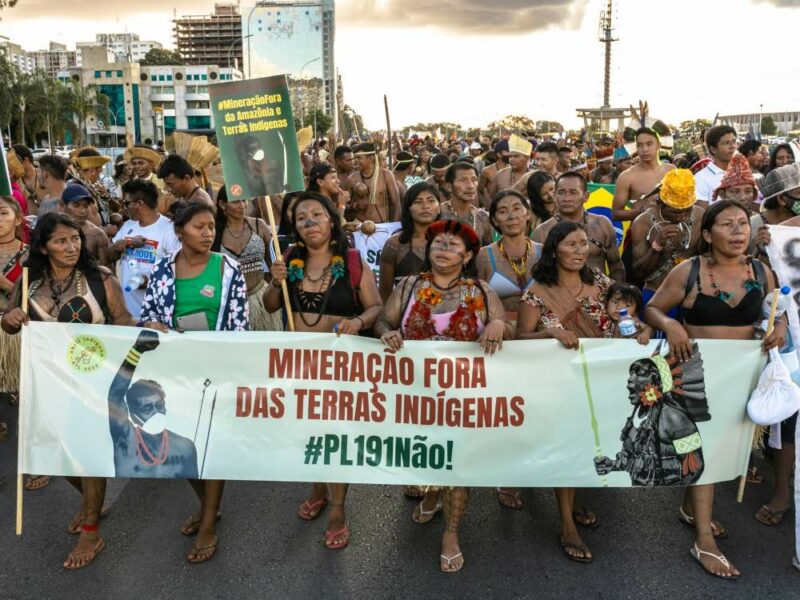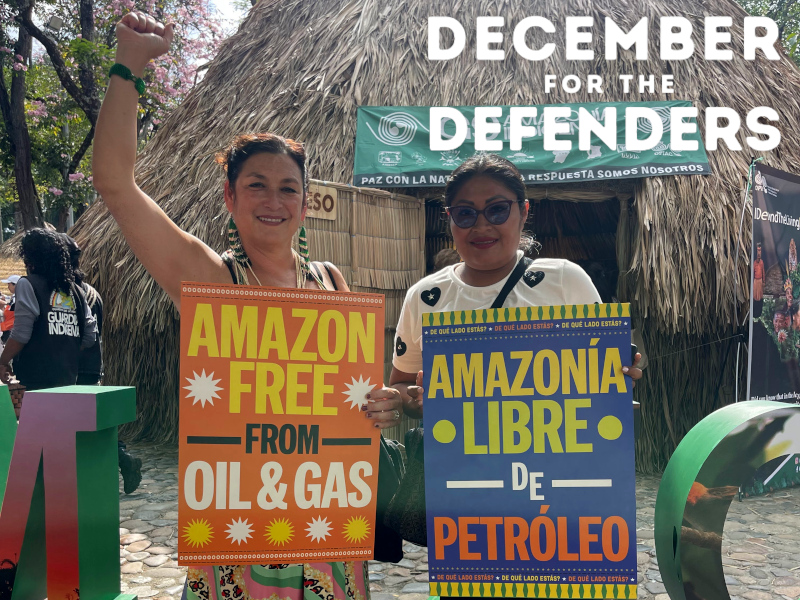Photos and video available upon request
Quito, Ecuador – After presenting to Ecuador’s President Lenin Moreno their demands to end natural resource extraction in their Amazon rainforest territories in a meeting in the presidential palace late Thursday, a delegation of Amazonian indigenous women announced they will give him fifteen days to provide concrete responses. The women also called for an end to the threats and attacks against Earth Defenders including themselves. Dozens of other women and allies rallied outside.
Government officials tried to assure the women that they had followed best practices applicable to relations with indigenous communities in the Amazon. President Moreno told the women he “worries a lot about oil and mining, because we have a future to take care of,” and assured them he wants to continue to “dialogue and converse.”
But the women debunked claims that current and future oil and mining projects have properly consulted with affected communities according to international standards, and made extremely clear their communities’ rejection of oil drilling and mining in their ancestral territory.
“We don’t want more oil and mining companies,” said Alicia Cahuiya of the Waorani nation, whose ancestral territory overlaps with Yasuní National Park, one of the most biodiverse places in the world and where Ecuador’s state oil company began drilling the first of 97 planned wells in January. “Oil has not brought development for the Waorani; it has only left us with oil spills and sickness.”
“Your government cannot permit that our rights continue to be violated,” Patricia Gualinga, Kichwa of Sarayaku, told the President. “The forest has to remain intact. Ecuador must change its energy policy. It could be an example for the world.” Sarayaku won a landmark ruling in 2012 when the Inter-American Court on Human Rights ruled that Ecuador had violated the community’s rights by permitting oil activities on their territory without free, prior, and informed consultation.
About a dozen women participated in the meeting, representing women from the Sapara, Kichwa of Sarayaku, Shuar, Shiwiar, Waorani, Achuar, and other Amazonian indigenous nations that have participated in the march and protests.
“We gave him our demands, which was what we intended to do. And now, we must keep fighting, and we will! We will return to our communities and wait for a response from the government. If we do not receive a response in two weeks, we will be back,” said Zoila Castillo, Kichwa and Vice President of the Parliament of the Confederation of Indigenous Nationalities of the Ecuadorian Amazon (CONFENIAE).
In December, President Moreno agreed to halt new auctions of oil and mining concessions without proper consultation with local communities, after a two-week march by hundreds of indigenous people from the Amazon to Quito. However, in mid-February his government announced a new oil auction, the Ronda Suroriente (Southwest Round) and handed out several new mining concessions.
In the face of these contradictions, as well as death threats against recognized leaders like Patricia Gualinga, indigenous women from across the Ecuadorian Amazon decided to mobilize. They marched in Puyo on International Women’s Day, developed a set of demands to guarantee their own security and to reinforce their communities’ rejection of natural resource extraction from their territories, and took those demands to Quito.
“We reject the information sharing or ‘consultations’ for extractive projects, because in our decision-making spaces we have already decided NO more extractive projects in our territories, employing our right to self-determination,” wrote the women in their joint statement of demands. “We reject the new licitation of sixteen oil blocks in the Southwest Oil Round within the territories of the Andoas, Achuar, Shuar, Kichwa, Shiwiar, Waorani, and Sapara indigenous peoples.”
“After two months of planning and two weeks of mobilizations, the voices and demands of Amazonian women defenders of the Amazon against extraction were finally heard,” said Amazon Watch Executive Director Leila Salazar-López. “They brought their demands, their songs, their emotions and their babies to the meeting to show that they are women, they are human and they have rights just like everyone else.”
Indigenous peoples – including several still living in voluntary isolation – and rural communities are under threat in the Amazon from large-scale industrial development, especially policies and activities related to extractive industries like oil and mining.
U.S. institutions also play a role in the situation protested by the women. Amazon Watch research has demonstrated that U.S. financial institutions BlackRock and JPMorgan Chase finance oil companies operating in the Ecuadorian Amazon, even in places where indigenous communities adamantly oppose drilling on their ancestral territories. Separate research shows that U.S. corporations with large transport footprints, including Amazon.com, are using Amazon-derived fuel in their transport operations given that a majority of crude exported from the Amazon comes to the United States, mostly California.














